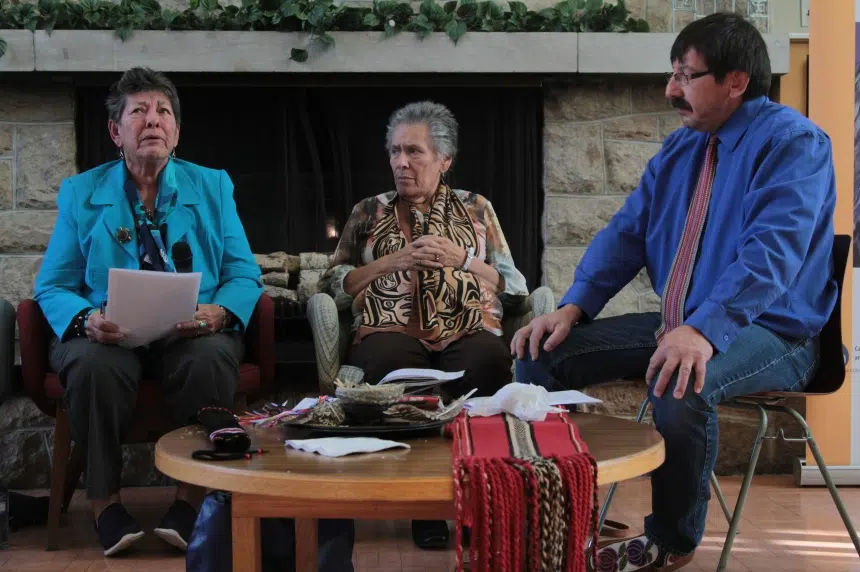Dianne Ludwig wiped a tear away from her eye and settled her cracking voice as she recalled the most painful memories of her life.
“I didn’t raise my son. Somebody else raised him,” she said, pausing to collect herself.
Ludwig is among the thousands of Canadian First Nations and Métis families whose children were taken away from them by the government and placed in foster care, often with non-aboriginal families, in what because known as the ’60s Scoop.
She, along with her son and cousin, shared their experiences Wednesday as part of the launch for the First People – First Person campaign for the Canadian Depression Research and Intervention Network’s Indigenous Hub. The goal of the project is to spread knowledge, and build a working relationship with First Nations communities to prevent and treat depression and other forms of mental illness.
Ludwig, whose last name was McKay at the time, remembers the day in 1962 when social services came to their home in the northern Saskatchewan community of Buffalo Narrows and took her four-month-old son away.
“They told me I was too young to raise Robert, so they took him in a plane and I never saw him again,” she said. “They promised us they would never change their names, but they did. They told us they would always keep them in touch with their family but they never did. Lies, that’s all they were.”
Unbeknownst to Ludwig, her son was whisked away to Duck Lake where he was placed into the foster care of the Doucette family. She wouldn’t hear about or see him for nearly two decades.
“They took us from our families,” Robert Doucette said, describing how he arrived at his new home with only a bottle, a shirt and a soiled diaper. “When I was growing up, I really was alone.”
Six other children, including his sister, came to live with the Doucettes. Some only spoke Cree when they arrived.
Doucette said he always knew he was either Métis or Aboriginal because everyone called him chief. Later, he found his birth certificate with his original McKay last name and his birth mother’s name.
But it wasn’t until he was in high school that the pair would be reunited in North Battleford.
“That was such a beautiful day. I think that was the happiest day of my life,” Ludwig said.
Doucette said he was fortunate to have been placed with a family that cared for the children as if they were their own. Many children encountered physical and psychological abuse while under the care of the state. Even at family events, Doucette said his extended foster family treated him and his siblings differently.
In addition, when children were reunited with their families and communities, they were often treated as outsiders because of their lack of cultural and language knowledge.
The scoop lasted between 1960 and the mid 1980s, but Doucette said families are still unnecessarily torn apart today. Thousands of Saskatchewan First Nations children remain in foster care.
“If First Nations and Métis nations communities are ever going to heal, they need to give our kids back,” Doucette, who now heads the Métis Nation of Saskatchewan, said. He added that the first step to healing is acknowledging the past. “The story helps us to open the conversation up, for our community to hear part of the history and it is also a process of healing not only for the individuals but the whole community.”
He said communities must also welcome back those children who were lost in the ’60s scoop and have patience as they all adjust.
This year, Manitoba Premier Greg Selinger apologized to families affected by the scoop while Saskatchewan Premier Brad Wall said the province will apologize after consultation with First Nations and Métis groups.
Saskatchewan Foster Families says there is a significant need for Aboriginal and Métis foster families in order to maintain a child’s cultural identity.
Doucette said he isn’t looking for compensation, merely acknowledgment and a willingness to work towards a better future.
“You could give me $10 million, but that will never give my grandpa or grandma back to me,” he said. “It will never give me the 50 years that I was away from my family.











